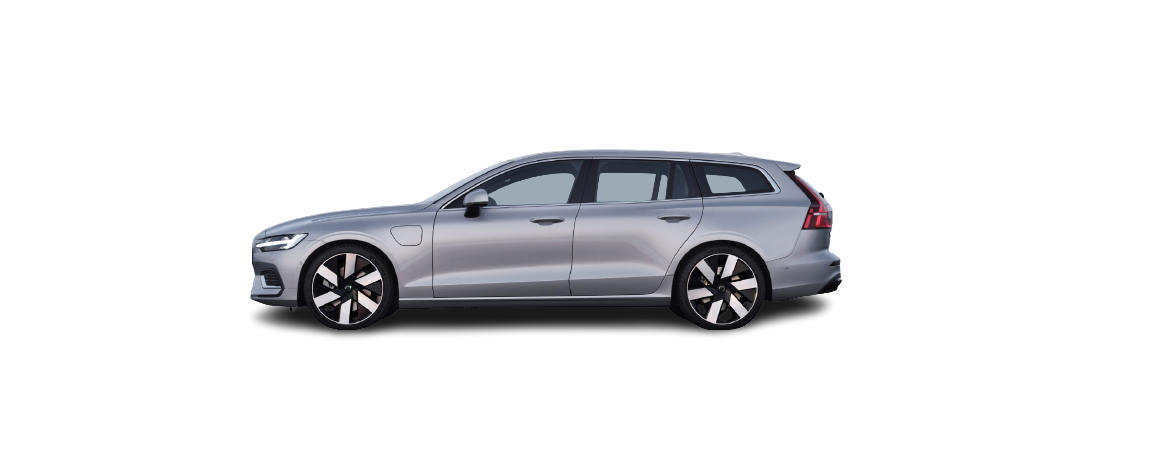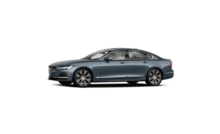- The detectors react differently depending on the nature of the collision and whether or not the seatbelts are fastened. Applies to all belt positions.
- It is therefore possible that only one (or none) of the airbags may inflate in a collision. The detectors sense the force of the collision on the vehicle and the action is adapted accordingly so that none, one or more airbags are deployed.
- The airbag system’s control module is located in the centre console. If the centre console is drenched with water or other liquid, disconnect the cables to the starter battery. Do not attempt to start the car since the airbags may deploy. Recovering the car. Volvo recommends that it is transported to an authorised Volvo workshop.
If any of the airbags have deployed, the following is recommended:
- Recovering the car. Volvo recommends that it is transported to an authorised Volvo workshop. Do not drive with deployed airbags.
- Volvo recommends engaging an authorised Volvo workshop to handle the replacement of components in the car’s safety systems.
- Seek medical attention if necessary.
Never drive with deployed airbags. They can make steering difficult. Other safety systems may also be damaged. The smoke and dust created when the airbags are deployed can cause skin and eye irritation/injury after intensive exposure. In case of irritation, wash with cold water. The rapid deployment sequence and airbag fabric may cause friction and skin burns.
Driver airbags
- Steering wheel airbag and knee airbag on the driver’s side in the front seat.
- In the event of a frontal collision, the airbags help to protect the head, neck, face and chest of the driver as well as the knees and legs.
- A sufficiently violent collision trips the sensors and the airbag/airbags is inflated. The airbag cushions the initial collision impact for the occupant. The airbag deflates when compressed by the collision. When this occurs, smoke escapes into the car. This is completely normal. The entire process, including inflation and deflation of the airbag, occurs within tenths of a second.
- The seatbelts and airbags interact. If the belt is not used or is used incorrectly, this may diminish the protection provided by the airbag in the event of a collision.
- To minimise the risk of injury if the airbag deploys, passengers must sit as upright as possible with their feet on the floor and backs against the backrest.
- Volvo recommends that an authorised Volvo workshop should be contacted for repair. Defective work in the airbag system could cause malfunction and result in serious personal injury.
- This airbag is fitted into the centre of the steering wheel. The steering wheel is marked AIRBAG.
- The airbag is folded up in the lower part of the instrument panel on the driver’s side. Its cover panel is marked AIRBAG.
Passenger airbag
- Passenger side front airbag.
- In the event of a frontal collision, the airbag helps to protect the head, neck, face and chest of the passenger as well as the knees and legs.
- A sufficiently violent collision trips the sensors and the airbag is inflated. The airbag cushions the initial collision impact for the occupant. The airbag deflates when compressed by the collision. When this occurs, smoke escapes into the car. This is completely normal. The entire process, including inflation and deflation of the airbag, occurs within tenths of a second.
- The seatbelts and airbags interact. If the belt is not used or is used incorrectly, this may diminish the protection provided by the airbag in the event of a collision.
- To minimise the risk of injury if the airbag deploys, passengers must sit as upright as possible with their feet on the floor and backs against the backrest.
- Volvo recommends that an authorised Volvo workshop should be contacted for repair. Defective work in the airbag system could cause malfunction and result in serious personal injury.
The airbag is folded up into a compartment above the glovebox. Its cover panel is marked AIRBAG.
Do not put objects in front of or above the dashboard where the passenger airbag is located.
- The label on the passenger side’s sun visor.
- The warning label for the passenger airbag is positioned as shown above.
- If the car is not equipped with a switch to activate/deactivate the passenger airbag, the airbag will always be activated.
- Never allow anybody to stand or sit in front of the front passenger seat.
- Never use a rear-facing child seat on the front passenger seat if the airbag is activated.
- Front-facing passengers (children and adults) must never sit on the front passenger seat if the passenger airbag is deactivated.
- Failure to follow the advice given above can endanger life or lead to serious personal injury.
- NEVER use a rearward facing child restraint on a seat protected by an ACTIVE AIRBAG in front of it, DEATH or SERIOUS INJURY to the CHILD can occur.
Activating and deactivating passenger airbag
- The passenger airbag can be deactivated if the car is equipped with a switch, Passenger Airbag Cut Off Switch (PACOS).
- The switch for the passenger airbag is located on the passenger end of the instrument panel and is accessible when the passenger door is open.
- Check that the switch is in the required position.
If the car is not equipped with a switch to activate/deactivate the passenger airbag, the airbag will always be activated.
- Pull the switch outward and turn from OFF to ON.
The driver display shows the message Passenger airbag on.
- If the passenger airbag has been activated/deactivated with the car in ignition position I or lower, a message is shown in the driver display and the following indicator in the roof console approx. 6 seconds after the car’s electrical system has been set in ignition position II.
- Confirm the message by pressing the right-hand steering wheel keypad’s O button.
- A text message and a warning symbol in the roof console indicate that the airbag for the front passenger seat is activated.
- Never use a rear-facing child seat on the front passenger seat when the airbag is activated.
- The passenger airbag must always be activated when front-facing passengers (children and adults) are sitting in the front passenger seat.
- Failure to follow the advice given above can endanger life or lead to serious personal injury.
- Pull the switch outward and turn from ON to OFF.
The driver display shows the message Passenger airbag off.
- If the passenger airbag has been activated/deactivated with the car in ignition position I or lower, a message is shown in the driver display and the following indicator in the roof console approx. 6 seconds after the car’s electrical system has been set in ignition position II.
- Confirm the message by pressing the right-hand steering wheel keypad’s O button.
- A text message and a symbol in the roof console indicate that the airbag for the front passenger seat is deactivated.
- Front-facing passengers (children and adults) must never sit on the passenger seat when the airbag is deactivated.
- Failure to follow the advice given above can endanger life or lead to serious personal injury.
- If the passenger airbag is deactivated, the electric seatbelt tensioner on the passenger side will also be deactivated.
Inflatable curtains
- The inflatable curtain is mounted along both sides of the headlining and helps protect the driver and outer seat passengers of the car. The panels are labelled with IC AIRBAG.
- A sufficiently violent collision trips the sensors and the inflatable curtain is inflated.
Warning
- Volvo recommends that an authorised Volvo workshop should be contacted for repair. Defective work in the inflatable curtain system can cause malfunction and result in serious personal injury.
- Never hang or attach heavy items onto the handles in the roof. The hooks are only designed for light coats and jackets (not for solid objects such as umbrellas).
- Do not screw or install anything onto the car’s headlining, door pillars or side panels. This could compromise the intended protection. Volvo recommends only using Volvo genuine parts that are approved for fitting within these areas.
- Leave 10 cm (4 inches) space between the load and the side windows if the car is loaded to above the top edge of the door windows. Otherwise, the intended protection of the inflatable curtain, which is concealed in the headlining, may be compromised.
- The inflatable curtain is a supplement to the seatbelts. Always use a seatbelt.
Near-side airbags
- The near-side airbags are fitted in the outer backrest frames of the front seats and help to protect the driver and passengers in the front seat.
- A sufficiently violent collision trips the sensors and the near-side airbag is inflated. The airbag inflates between the occupant and the door panel and thereby cushions the initial impact. The airbag deflates when compressed by the collision. The near-side airbag is normally only deployed on the side of the collision.
- Volvo recommends that an authorised Volvo workshop should be contacted for repair. Defective work in the side airbag system could cause malfunction and result in serious personal injury.
- Do not put objects in the area between the outside of the seat and the door panel, since this area is required by the side airbag.
- Volvo recommends the use only of car seat covers approved by Volvo. Other seat covers may impede the operation of the side airbags.
- Side airbags are a supplement the seatbelts. Always use a seatbelt.
Side airbags and child seats
The protection provided by the car to children seated in a child seat or on a booster cushion is not diminished by the side airbag.




